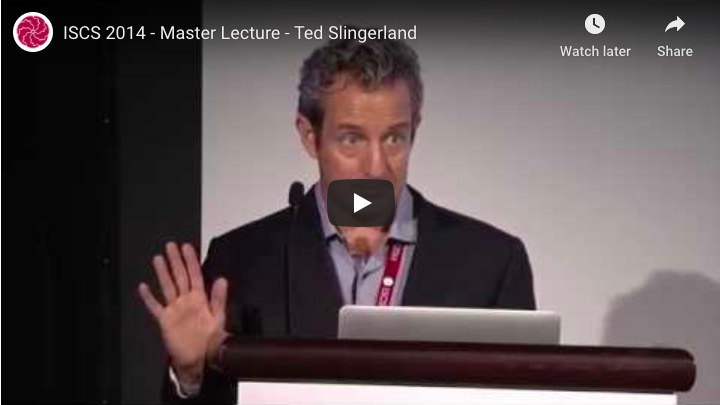
Edward Slingerland, PhD, is a professor of Asian studies and the Canada
research chair in Chinese thought and embodied cognition at the University of British Columbia, where he also holds adjunct appointments in philosophy and psychology. His research specialties and teaching interests include “warring states”; Chinese thought; religious studies (comparative religion, cognitive science, and evolution of religion); cognitive linguistics (blending and conceptual metaphor theory); ethics (virtue ethics and moral psychology); and the relationship between the humanities and the natural sciences. His publications include Effortless Action: Wu-wei as Conceptual Metaphor and Spiritual Ideal in Early China (Oxford 2003), The Analects of Confucius (Hackett 2003), What Science Offers the Humanities: Integrating Body &
Culture (Cambridge 2008), and Creating Consilience: Integrating the Sciences and Humanities (coedited with Mark Collard; Oxford, 2012), as well as more than 20 referred articles in top journals in a wide variety of fields. He is currently PI on a large Canadian government grant on “The Evolution of Religion and Morality,” and director of the Cultural Evolution of Religion Research Consortium (CERC) and the Database of Religious History (DRH). His latest work — a trade book entitled Trying Not to Try: The Art and Science of Spontaneity (Crown/Random House), which integrates ancient Chinese and modern scientific understandings of spontaneity — was published in March of 2014.



